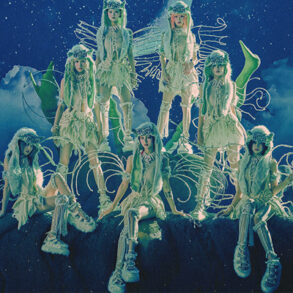
Megan Thee Stallion performing in Lagos in 2019.
“I’m conceited, never beated, never heard of defeated.” — Roxanne Shanté, 1984
This line from Roxanne’s Revenge exemplifies the confidence and assertiveness that Black female rappers must possess in a male-dominated industry like hip-hop. Despite facing waves of misogyny and discrimination, Black female rappers have consistently outshone their male counterparts with skill and resilience.
From MC Lyte to Missy Elliott, Black women have long thrived in the rap game, musically and artistically. While they may not have always topped the charts or dominated mainstream radio, their talent and empowerment have always been undeniable.
Since the era of Sha-Rock, female MCs have made significant cultural contributions, setting trends not only in music but in fashion, hair, and nails. Take a look at Foxy Brown or Lil’ Kim’s music videos from the ‘90s, and you’ll see how unique and captivating their style was — and continues to be. Even today, artists like Sexyy Red, known for her signature red hair and bold fashion, prove that style is just as integral to Black women’s music as their lyrics.
However, despite their groundbreaking contributions, Black female rappers still face significant challenges, including colorism, sexual objectification, and sexism. Many female artists are criticized for wearing revealing outfits or rapping explicit lyrics, but they should not be subjected to hate for exercising their autonomy. Women have the right to express themselves however they choose, if it is done safely and responsibly.
Despite these challenges, artists like Megan Thee Stallion continue to rise above and dominate the rap scene. Megan, a rapper from San Antonio, Texas, gained fame in 2018 with her albums Tina Snow and Fever.
After surviving a traumatic assault in 2020, she bounced back stronger than ever, even starting her own record label, Hot Girl Productions, to ensure her independence in the industry. Megan’s resilience and lyrical prowess make her one of the most influential rappers of her generation.
The spotlight is also shining on rising stars like Glorilla and Doechii. Both artists have captured widespread attention, signaling the increasing dominance of female rappers in hip-hop. Doechii’s album Alligator Bites Never Heal earned her multiple Grammy nominations, solidifying her place in the industry. Her unique style and sound make it clear that Black female rappers are experiencing exponential growth.
Glorilla’s album Glorious also made waves, particularly when she joined Megan Thee Stallion on tour. Glorilla’s first-week sales were the highest for any female rapper this year, further proving the growing influence of women in rap.
Beyond music, female rappers are also making their voices heard in politics. Artists like Cardi B, Glorilla, MC Lyte, and Flo Milli have publicly supported Kamala Harris during her presidential campaign. This political advocacy ties directly into their music, as many rap songs address issues like bodily autonomy and the right to abortion. Megan Thee Stallion’s “Plan B” and Latto’s “Put It on Da Floor” are examples of songs that tackle these themes head-on.
Whether you admire Black female rappers for their music, their style, or their activism, it’s clear that they are proving they are here to stay. Female rappers are not only challenging their male counterparts — they are reshaping the industry and creating new paths for themselves and the next generation.
Female rap is more than just about taking someone’s man or dancing in the club — it’s about breaking boundaries and redefining what it means to be a woman in the music world.
The opinions expressed in this column are those of the author and do not necessarily reflect the views of The News Record. If you have feedback or concerns, please contact us at editor@newsrecord.org.





